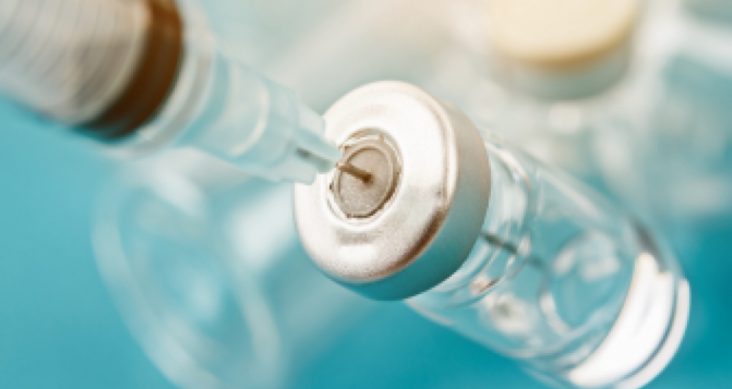Romero: Vaccine recommendations meant to save the most lives
by December 5, 2020 5:11 pm 642 views

The national committee recommending who first will be vaccinated for COVID-19 chose long-term care residents along with health care workers to save the most lives and reduce the strain on the health care system, said Arkansas Secretary of Health Dr. Jose Romero, who chairs the committee.
Now it will decide who comes next among essential workers, senior citizens and those with multiple co-morbidities.
Romero chairs the Advisory Committee on Immunization Practices, a national group advising the U.S. Centers for Disease Control and Prevention. It released its first set of recommendations Dec. 1, saying health care workers and long-term care residents should be immunized first.
Romero said in an interview Friday (Dec. 4) that health care workers must be protected to continue providing services to the public, while nursing home residents have proven especially vulnerable to the disease.
“The discussions we had are all designed to minimize risk, maximize benefits, and address issues of disparity and inequality and make sure that we have equitable distribution of vaccine,” he said. “And so looking at the data that we had, it was felt that maximum benefits, minimum harm would be given to the society at large if we targeted these two groups.”
Romero said the vaccine is highly effective and could save the most lives if it’s targeted to long-term care residents. Immunizing them would reduce the strain on the health care system that’s caused by caring for the large numbers of COVID-19 patients in that population. Romero said the recommendations were the result of months of deliberations starting in April. Twenty-five work group meetings have occurred that were not open to the public along with six or seven that were open to the public. The committee’s recommendations came days before the Food and Drug Administration (FDA) will consider approving a vaccine by Pfizer on Dec. 10.

Romero told Arkansas legislators Nov. 30 that the state expects to receive about 25,000 doses of that first batch. However, in the interview, Romero said the allotment “changes over time.”
“I’m really reluctant to even list a number right now,” he said. “It probably isn’t the best because it may get hopes up because we know that this has changed. Initially, we were told to budget for 90,000, and it’s been moving ever since.”
Romero said in the interview that once the vaccine is approved, a system run by the federal government will determine how many vaccines the state will receive. Vaccines might arrive in Arkansas within 24-72 hours.
The FDA could approve another vaccine produced by Moderna the following week on Dec. 17. Both companies say their vaccines are about 95% effective. Romero said the state has been told it could receive a larger shipment of the Moderna vaccine. However, the calendar might delay its arrival because Dec. 17 is on a Thursday just before the weekend, and the next weekend is Christmas.
The initial allotments will not be large enough to vaccinate all of the state’s health care workers and long-term care residents. The Advisory Committee on Immunization Practices will consider three other groups for early phase vaccinations: essential workers, people over 65, and people with multiple co-morbidities that make them more vulnerable to the disease.
Romero said he expects essential workers to be next in line, with the other two groups to be combined into one phase. The committee will start discussing that prioritization toward the end of the year. It has time to do so because Romero doesn’t expect everyone in the first phase to be vaccinated until late January or possibly February. He estimated that vaccines will be available to the rest of the general population by “somewhere around May – definitely, I think, by the beginning of the second half of the year.” He said the timing will depend on how soon other vaccines are approved. April is possible if multiple vaccines have been distributed.
As for the end of the pandemic, Romero said, “We will be returning to some semblance of what we were before maybe towards the end of next year, but we have to have that population immunized.” He said 65% to 70% of the population will have to be immunized before the country reaches herd immunity, where enough people are immune that the virus runs out of hosts to infect.
We’re a long way from that number. Romero said probably no more than 5% of the population has evidence of antibodies in their system, depending on where they live, and he called that a “hopeful number.” In Arkansas, it’s probably 3% to 4%. Reaching that 65% to 70% will require public acceptance. Romero noted that a third of the population has indicated they don’t want the vaccine, and that number is about 50% among some ethnic minorities.
Romero said the public must be educated that the vaccine is safe. Between pharmaceutical companies, the FDA and the CDC, there are rigorous safety checks in place to detect problems, he said. The vaccine was developed rapidly thanks to information gathered while responding to other coronaviruses, including the SARS epidemic of 2003 and the Middle East Respiratory Syndrome virus, which appeared in 2012.
“We have these beautiful molecular techniques that allow us to find what we used to find with a sledgehammer, we can now find by dissecting the genome delicately,” he said.
